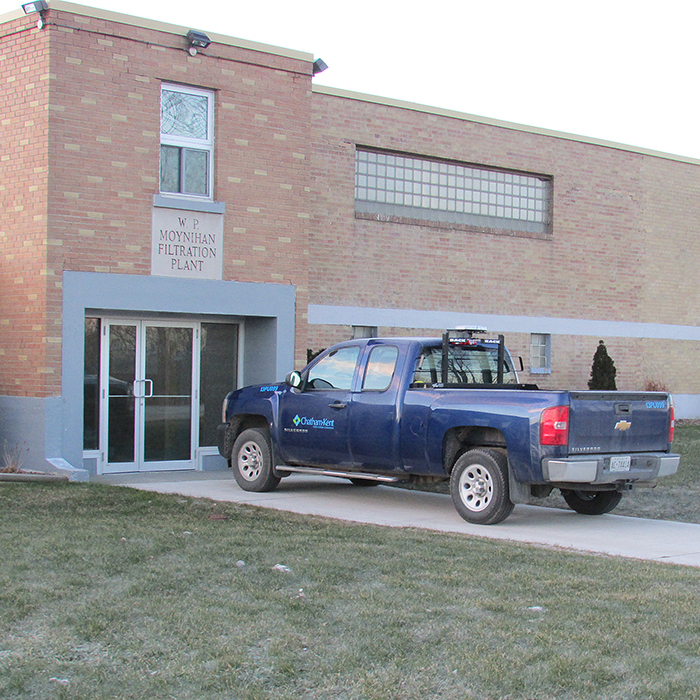
Nearly eight months after they raised concerns about a plan to close Wallaceburg’s Water Treatment plant, local citizens will get a chance to re-examine the issue at a public meeting June 9.
A public input meeting last November was highly criticized by local residents who attended and Wallaceburg Councillor Jeff Wesley.
“Despite calling it a public input meeting, it was anything but,” Henrie Timmers said at the time. “We were told what to like, what to think and that there wasn’t anything we could do about it.”
The meeting was hosted by the Chatham-Kent Public Utilities Commission and Stantec Consulting Ltd. to present a series of options, which included rehabilitating the current Wallaceburg Water Treatment Plant.
Stantec also announced that its “preferred alternative” was connecting to the Chatham water supply, which gets its water from Lake Erie.
Stantec outlined the financial impact of each alternative, with upgrading the Wallaceburg Treatment Plant costing approximately $3.4 million in the short term for capital costs to rehabilitate the existing facility.
However, Stantec said staying with the Wallaceburg option, the long-term forecast of 40 years would see it costing upwards to $67.2 million.
Stantec’s preferred option of connecting to the Chatham drinking water system would cost more in the short term for capital cost, approximately $11.9 million to $20.3 million, depending on which of the four design solutions are chosen.
The projected 40-year financial outlook ranges from $37.5 million to $41.2 million.
The resulting anger over what residents have come to believe is a foregone conclusion has galvanized the community, said Counc. Carmen McGregor.
“We have business groups, environmental groups, average citizens and no one believes abandoning the Wallaceburg plant in favour of Lake Erie water makes sense.”
McGregor said dropping a 24 page report on the public such as was done in November doesn’t generate positive feedback.
“I don’t like that much information being put on a desk or a power point display and then asking me my opinion a few minutes later,” she said. “I don’t think that it’s fair to the public. I want to be able to question the authors about why they’ve reached the conclusion they have. I’m not prepared to just sit and accept whatever’s put in front of me.”
The move has been widely criticized in Wallaceburg, with local environmentalists from the group WATCH (Wallaceburg Advisory Team for a Cleaner Habitat), business groups and others opposed.
More than 100 people have contacted the PUC and Stantec with their concerns.
Timmers said a Facebook page “Say no to Lake Erie water” has about 100 members and an on-line petition at change.org has just under 500 signatures opposing the move.
“We’ve done this in the face of the municipality and Stantec basically telling us it doesn’t matter what we think, they’re going to do what they want,” he said. “That’s the kind of attitude that discourages public participation.”
Andrew Galloway C.E.T. Engineering Technologist with the Chatham-Kent Public Utilities Commission said he hopes residents attend the Tuesday, June 9 meeting at the UAW hall in Wallaceburg. Doors open at 6:30pm, presentation starts at 7pm.
“I’m hoping people come out and learn first-hand what we’re saying,” he said. “We will be reviewing the Stantec report and incorporating what residents and concerned groups have told us.”
Timmers said the quality of Lake Erie water is suspect due to massive algae blooms that have garnered international media attention after water intakes in Ohio were closed last year.
“The city of Detroit built its new intake near Port Huron more than 50 miles away because they didn’t trust Lake Erie water.”
Timmers said phosphorous fertilizer run off into the lake from farm operations has given rise to the blooms. “Tree cover used to slow the amount going into the lake but with all of the clear-cutting in Chatham-Kent, more concentrated run off makes the situation worse.”
Galloway said once the Wallaceburg meeting is over, the PUC intends to meet with a number of stakeholders and commissioners before making a final recommendation to council.






